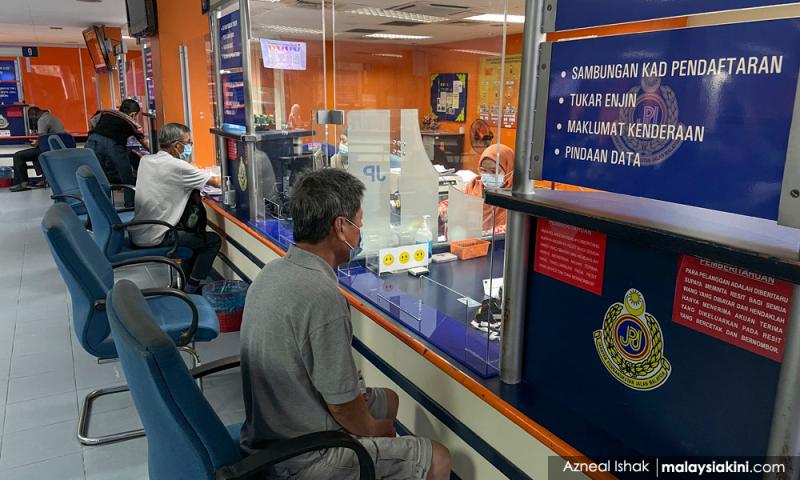LETTER | Overhaul the entire road tax mechanism
LETTER | During the 55th anniversary dinner of Kuala Lumpur and Selangor Car Dealers and Credit Companies Association on Jan 13, Transport Minister Anthony Loke disclosed that road tax will be digitalised to replace the current practice of displaying stickers on front windscreens.
In one fell swoop, many problems associated with physical road tax printed on stickers that break easily will be relegated to history. Digitalisation should also be extended to commercial vehicle permits that are printed on paper and kept in rental cars, taxis, buses, lorries, and others.
But no system can be foolproof and Malaysians do not lack ingenuity in beating the system. In the times to come, many identical vehicles could be fitted with the same registration number plates and used in different states. These vehicles could belong to the same or different owners.
The ruse would only be exposed when a police report is made after an accident, or innocent owners protested and proved they were not in the state when a summons was issued for driving or parking offences. However, fail-safe methods are also likely to be incorporated.
In any case, the archaic system of calculating road tax should be discarded and replaced by a fairer method using plain common sense, which is becoming increasingly rare. If the tax is based on the usage of public roads, then rates should be based on the vehicle’s weight on the road, not engine size.
This is more so when small engines of today, when turbocharged, are more powerful than naturally aspirated engines that are twice the size. And what will be the rate for power generated by batteries as used in hybrid and fully electric vehicles, and also hydrogen-powered fuel cells?
Basing the tax on the total power generated by internal combustion engines (ICE) and batteries would certainly be fairer than just the cubic centimetre sizes of ICE. But the most equitable method is to base road tax on vehicle weight which has a direct impact on the wear and tear of our roads.
This is far from rocket science, but our Road Transport Department had been sitting pretty, with little urgency to change things for the better. This is not the first time I have been calling for road tax to be based on vehicle weight. They include articles published in 2017, 2018, and 2021.
Hopefully, this time, not only road tax will be digitalised but the rates would also be based on vehicle weight. Instead of waiting for ages to take incremental steps, our Road Transport Department ought to make a quantum leap on all fronts and not be bogged down by legacy issues.
The views expressed here are those of the author/contributor and do not necessarily represent the views of Malaysiakini.
RM12.50 / month
- Unlimited access to award-winning journalism
- Comment and share your opinions on all our articles
- Gift interesting stories to your friends
- Tax deductable
